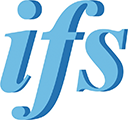
Die casting is a common industrial process for the production of complexly shaped products made of light metal alloys. However, the welding of cast structures is fraught with some challenges such as hydrogen-induced, metallurgical pore formation and the irregular occurrence of surface pores and molten pool ejections. The development of these weld seam imperfections is strongly dependent on the varying material quality and influencing factors, such as hydrogen content, release agent occupancy, mold filling and venting of the die-casting mold. As a result of the imperfections that occur during the welding of aluminium die-casting, high scrap rates and high costs for necessary rework are incurred. As a result, the ecological footprint, the cost-effectiveness and the quality of the assemblies deteriorate.
The aim of this thesis is to investigate the influence of casting process parameters on the local suitability for welding of aluminum die-cast components. For this purpose, a literature search on the basics of welding aluminium die casting must first be carried out. Subsequently, welding tests are to be carried out and the seams are to be examined for internal and external imperfections by means of visual inspection and computed tomography. The results of these investigations are to be correlated with the varied casting process parameters.
